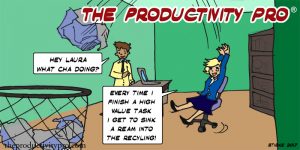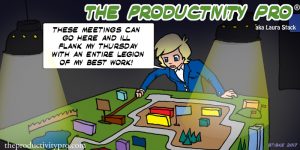
“Dim lights are producing dimwits” – Joel Soler, American psychologist. Do you find a dimly-lit workspace preferable to a brightly-lit office? Some people do. Perhaps you find it calming and relaxing; or maybe the setting makes you feel comfortable at a visceral level, because of its similarity to the firelit cave/camp background where humanity spent so much of its history. Either way, we may be shooting ourselves in the foot when we labor away in dim office caves. The results of a recent study released by Michigan State University psychologists has re-emphasized our need for bright light in order to function at peak productivity. Nile grass rats, the subjects of the study, have a diurnal lifestyle and biological systems much like ours. The researchers observed significant negative … [Read more...]











